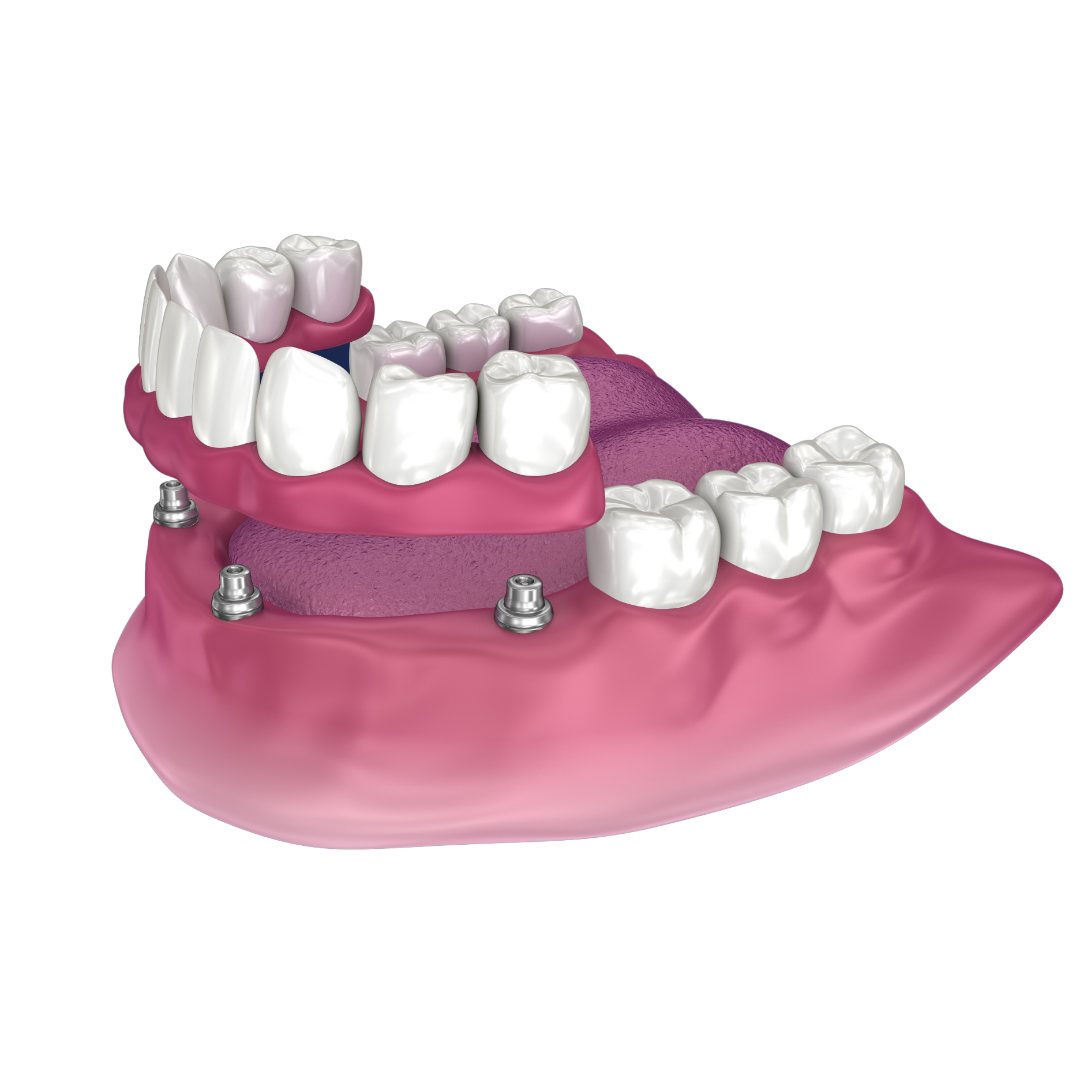
Dental implants are an excellent solution for replacing missing teeth, offering a durable and natural-looking option for restoring your smile. When considering dental implants, one of the most common questions is: How long do dental implants last? This is an important factor for anyone looking to make a long-term investment in their oral health. In this post, we will explore how long dental implants can last, what affects their longevity, and why they are a leading choice in dentistry for missing tooth replacement.
What Are Dental Implants?
Dental implants are titanium posts that are surgically placed into the jawbone to act as artificial roots for missing teeth. Once the implant fuses with the bone, it provides a stable base for a crown, bridge, or dentistry for missing tooth replacement. Dental implants offer a solution that mimics the look, feel, and function of natural teeth, giving you the confidence to eat, speak, and smile without discomfort.
The durability of dental implants makes them a popular choice for those seeking a permanent fix for missing teeth. However, like any dental treatment, the lifespan of dental implants depends on various factors, including how well they are cared for.
“dental implants can last 20 to 30 years or even longer with proper care.”

How Long Do Dental Implants Last?
In general, dental implants can last 20 to 30 years or even longer with proper care. While the implants themselves are designed to be a permanent solution, the crown or artificial tooth placed on top of the implant may need to be replaced after 10 to 15 years due to wear and tear. However, the implant fixture (the titanium post) often remains in place for life, provided the surrounding bone and tissue stay healthy.
The longevity of dental implants depends on factors such as oral hygiene, lifestyle habits, and regular dental check-ups. By following a good dental care routine, implants can last a lifetime without the need for frequent replacements.
Factors That Affect the Lifespan of Dental Implants
Several factors play a role in how long dental implants will last. Here are some key considerations that can impact the longevity of your implants:
1. Oral Hygiene
Good oral hygiene is crucial to the long-term success of dental implants. Brushing twice a day, flossing daily, and using mouthwash can help prevent infections and keep your gums healthy. It is important to care for your implants just as you would your natural teeth. This helps to protect the surrounding tissues and bone, which are essential for maintaining the stability of the implant.
Failing to maintain good oral hygiene can lead to peri-implantitis, an infection that affects the gum and bone around the implant. Left untreated, peri-implantitis can cause the implant to fail.
2. Bone Health
One of the reasons dental implants are so effective is that they rely on healthy bone for support. After the implant is placed, it undergoes a process called osseointegration, where the implant fuses with the jawbone. This provides a strong, stable base for the artificial tooth.
However, if the bone density or health of the jaw deteriorates, it can affect the implant’s stability. Bone loss may occur due to gum disease, trauma, or conditions such as osteoporosis. For this reason, it’s important to maintain good overall health and follow your dentist’s advice on keeping your jawbone strong.
3. Lifestyle Habits
Certain lifestyle habits can influence how long your dental implants last. Smoking, for instance, is known to interfere with the healing process after implant surgery and can increase the risk of complications such as infection or implant failure. It’s advisable to quit smoking to improve the chances of a successful dental implant procedure and ensure long-term success.
Other habits, such as grinding your teeth (bruxism) or chewing on hard objects like ice or pens, can put excess pressure on the implant and may lead to damage. Wearing a nightguard to protect your teeth from grinding or being mindful of what you chew can help extend the lifespan of your implants.
4. Regular Check-ups
Routine dental check-ups are essential for monitoring the health of your dental implants. During these visits, your dentist will check the condition of the implant, the surrounding bone, and the artificial tooth. Regular cleanings help prevent plaque build-up, which can lead to gum disease and other issues that may affect your implants.
By attending these check-ups and addressing any concerns early, you can keep your dental implants in top condition for many years.
The Benefits of Dental Implants
There are many reasons why dental implants are considered one of the best solutions in dentistry for missing tooth replacement. Some of the key benefits include:
- Natural Appearance: Implants are designed to look and feel like natural teeth, providing a seamless appearance.
- Durability: With proper care, implants can last a lifetime, making them a cost-effective solution over time.
- Preserves Bone Health: Implants stimulate the jawbone, preventing bone loss that can occur when teeth are missing.
- Comfort: Unlike dentures, which can slip or cause discomfort, implants are securely anchored, offering improved comfort and stability.
- Improved Function: Implants allow you to eat, speak, and smile with confidence, restoring the full function of your mouth.
How to Extend the Life of Your Dental Implants
To maximise the lifespan of your dental implants, it’s important to adopt good oral care habits and follow your dentist’s recommendations. Here are a few tips to help keep your implants in excellent condition:
- Brush and Floss Daily: Regular brushing and flossing are essential to prevent plaque build-up and keep your gums healthy.
- Use a Soft-Bristle Toothbrush: A soft-bristle toothbrush is gentle on both your natural teeth and implants.
- Avoid Smoking: Quitting smoking can improve the success rate of dental implants and promote healing.
- Protect Your Implants: If you grind your teeth, wearing a nightguard can prevent damage to your implants.
- Visit Your Dentist Regularly: Regular dental visits ensure that any potential problems with your implants are caught early, preventing long-term complications.
Dental implants are a reliable, long-lasting solution for replacing missing teeth, often lasting 20 to 30 years or more with proper care. Factors such as oral hygiene, bone health, and lifestyle habits play a crucial role in the longevity of implants. By maintaining good oral care and attending regular check-ups, you can enjoy the benefits of dental implants for many years. If you're considering dentistry for missing tooth replacement, dental implants offer a natural, durable, and functional solution that can enhance both your smile and your overall quality of life.
With the right care and attention, dental implants can provide you with a lifetime of confidence and comfort.
You might like these posts
Stay inspired
Be the first to receive exclusive dental care insights and updates from Oral Insight. Don’t worry, we won’t flood your inbox!
Contact Us
We will get back to you as soon as possible.
Please try again later.